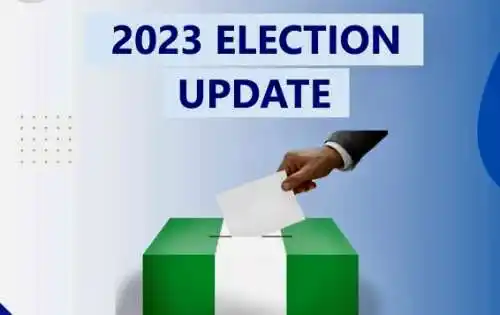Nigeria’s opposition Peoples Democratic Party (PDP) has won the governorship election in Bayelsa state – one of its traditional strongholds.
Turnout was low at just 30% yet results were announced a day later than planned because votes were still being counted.
Governorship elections were also held in the states of Imo and Kogi – both won by the ruling All Progressives Congress (APC) candidates.
In both cases there were reports of violence and rigging.
All three states saw low voter turnout – indicating that many Nigerians have little interest or confidence in the system.
Under Nigeria’s federal system, governors control huge budgets – larger than those of some countries in West Africa.
However, there have been numerous reports that some of this money has been stolen. Some former governors have been prosecuted and jailed for misappropriation of funds and money laundering.
In Bayelsa state, the PDP’s Douye Diri took 175,000 votes, the APC’s candidate Timipre Silva came second with 110,000 votes, and Udengs Eradiri of Labour Party won just 900.
Some clashes had been reported in Bayelsa state during voting on Saturday. An electoral official was abducted a day before the polls before being released.
In Imo state, Hope Uzodinma won with more than 540,000 votes, Samuel Anyanwu of the main opposition Peoples Democratic Party (PDP) came second with 71,500 votes, with the Labour Party’s Athan Nneji Achonu third on 64,000.
Some Imo residents were seen queuing to buy water rather than going to vote as a strike has cut supplies of drinking water and electricity.
In Kogi state, the APC’s Ahmed Usman Ododo got 446,000 votes, Alhaji Muritala Ajaka, the Social Democratic Party (SDP) came second with 260,000, while the PDP’s Dino Melaye got 46,000.
Two people accused of trying to steal ballot boxes were reportedly shot dead.
There were reports of fraud in parts of Kogi but the electoral commission said this was not enough to affect the overall outcome.
The electoral body had initially said fresh elections would be needed in parts of the state following opposition allegations that the results had been written before voting had even started.
It later announced that the number of registered voters in these areas was smaller than Mr Ododo’s margin of victory so the reruns were cancelled.
These elections were seen as a test of how much confidence people still have in the electoral process after February’s presidential election results were challenged by the two main opposition candidates.
They had alleged irregularities and sought to have the results overturned in court.
But President Bola Tinubu’s election victory was upheld, with the judges saying the opposition had failed to present any evidence of rigging.
BBC
